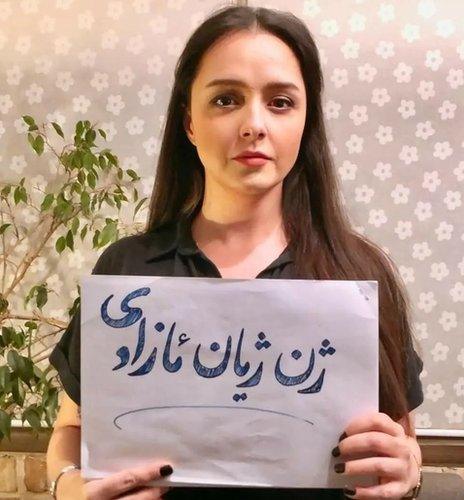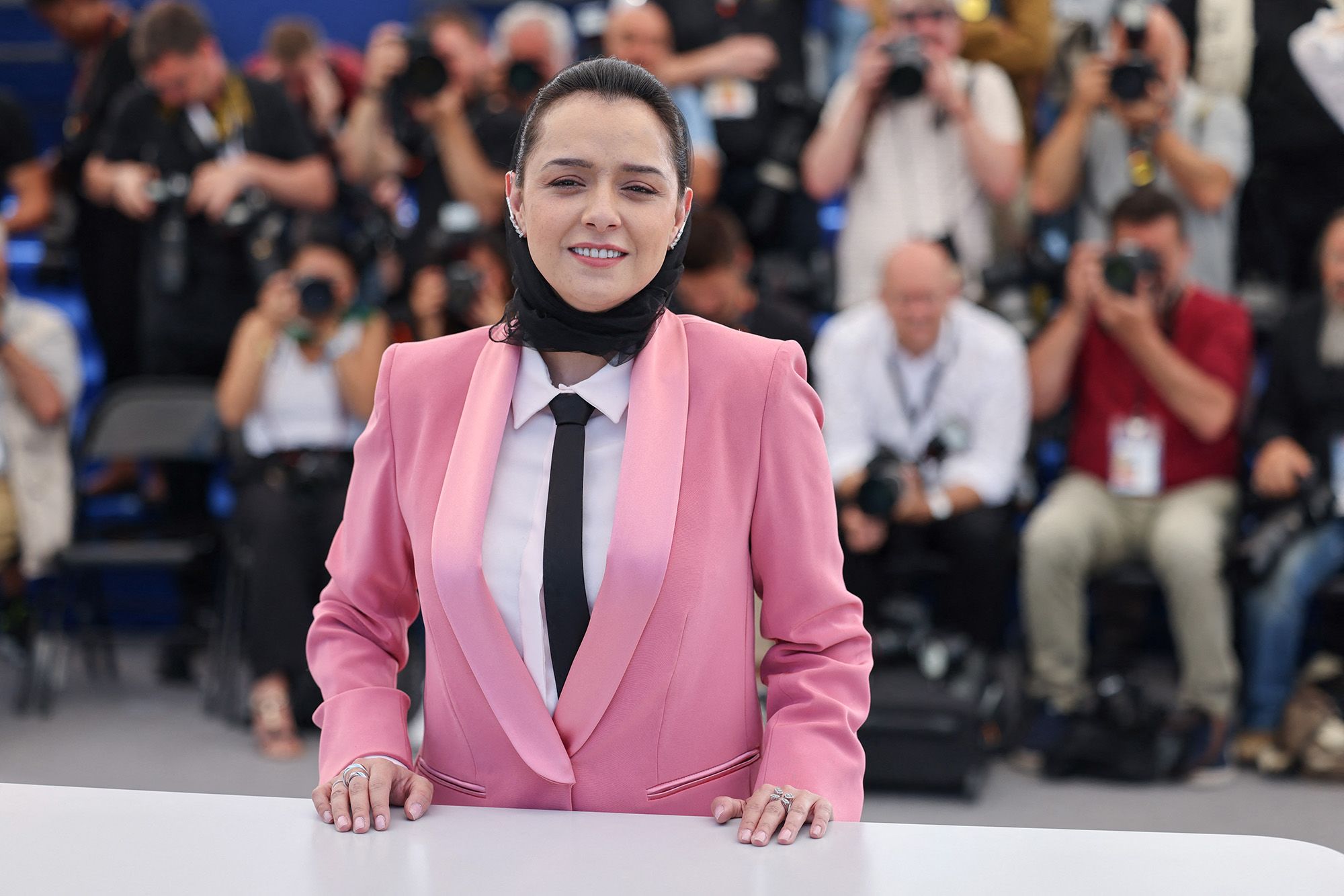Taraneh Alidoosti, an Iranian actress, has faced backlash and criticism from some members of the Iranian public and government for her decision not to wear a hijab, or head covering, in public. In Iran, it is common for women to wear a hijab in public, and the decision to not do so can be seen as a challenge to traditional cultural and religious norms.
In the post, Alidoosti holds a sign reading "Women, Life, Freedom" in Kurdish and writes that the "migration of singing birds" (a metaphor for death) is not the end of the rebellion. Alidoosti, who has been a vocal critic of the regime and a public supporter of the demonstrations, vowed in a previous Instagram post to remain in Iran and fight for her home and the rights of imprisoned and murdered individuals.
She is one of several female Iranian actors who have removed their mandatory hijabs to protest the clerical establishment. Since the death of Mahsa Amini, a Kurdish Iranian woman detained by the morality police, on September 16, protesters in Iran have coalesced around a range of grievances with the regime.
Iranian authorities have arrested actress Taraneh Alidoosti on charges of "spreading falsehoods" about the recent protest movement in the country. Alidoosti was detained after expressing solidarity with the demonstrators in an Instagram post and criticizing international organizations for not speaking out against the execution of Mohsen Shekari, a man who was hanged by authorities after being accused of being a "rioter" and wounding a member of a paramilitary force with a machete during a protest in Tehran.
Alidoosti, who has more than eight million Instagram followers and is known for her role in the Oscar-winning film The Salesman, has become a vocal critic of the Iranian government's response to the nationwide protests, which began in September after the death of Mahsa Amini in police custody.
Some have argued that the decision to wear or not wear a hijab should be a matter of personal choice, while others believe that it is a religious obligation and a symbol of modesty and piety. The issue has also been politicized, with some using the debate over the hijab as a way to score political points or advance particular agendas.
Despite the backlash that she has faced, Alidoosti has stood by her decision not to wear a hijab, stating that it is a personal choice and that she has the right to express herself in the way that she sees fit. She has also called for greater tolerance and respect for diversity in Iranian society.
In conclusion, Taraneh Alidoosti's decision not to wear a hijab in public has caused backlash in Iran, but has also sparked a wider conversation about the role of women in society and the importance of personal choice and freedom of expression.



No comments:
Post a Comment